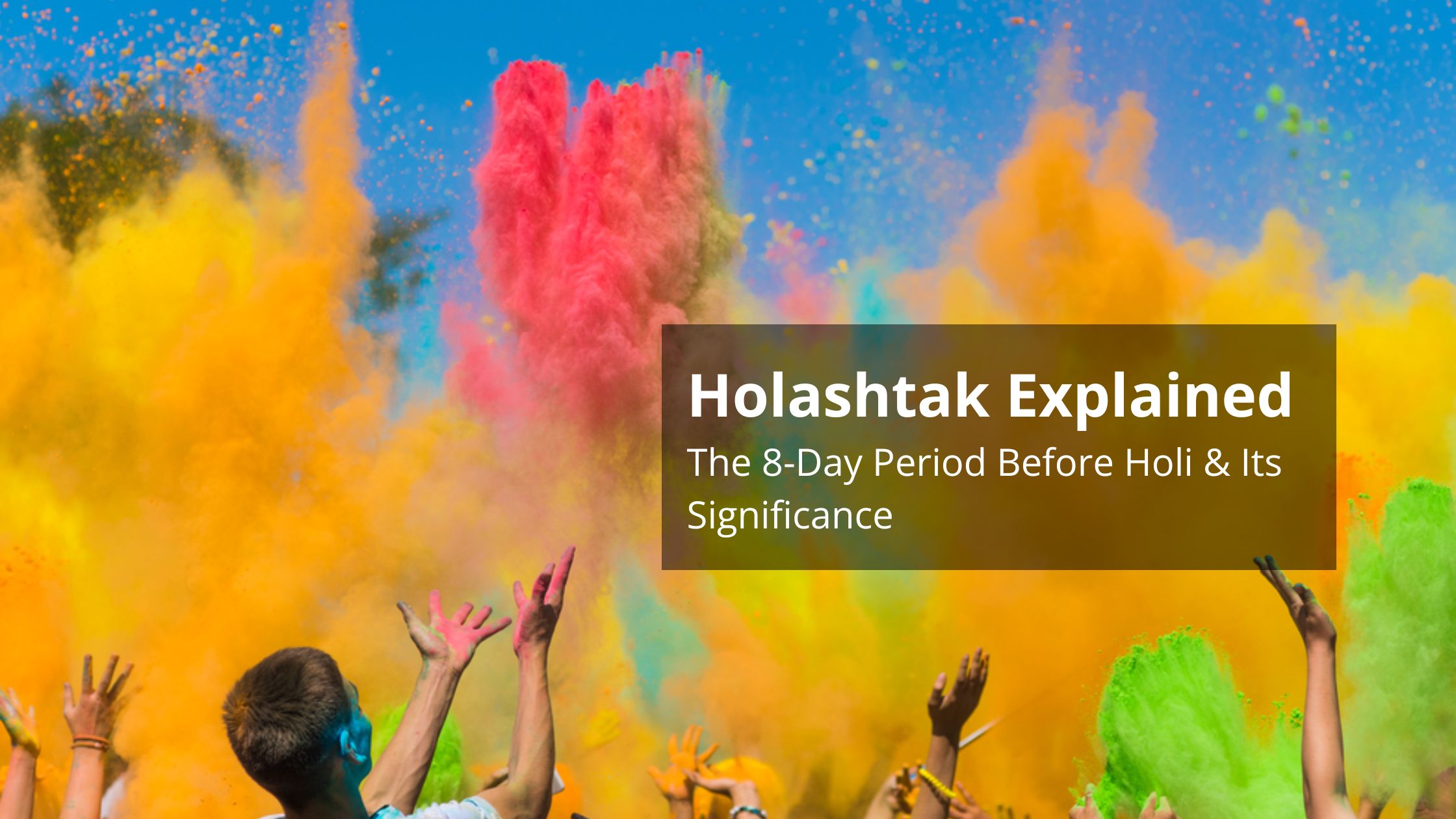
Holashtak is an important yet lesser-known period in Hindu traditions, marking the eight days leading up to the festival of Holi. Many people consider this time inauspicious for starting new ventures, marriages, or other significant activities. But why is Holashtak regarded this way? What is its deeper spiritual and astrological significance? Let’s explore the myths, beliefs, and practices associated with this unique phase.
The word "Holashtak" is derived from “Holi” and “Ashtak”, meaning "eight days before Holi." It begins on the Ashtami (eighth day) of the Shukla Paksha (waxing phase of the moon) in the Hindu month of Phalguna and ends on Purnima (full moon), the day of Holika Dahan.
During this time, planetary positions are believed to become unstable, leading to negative influences on major life events. This is why Hindus avoid conducting marriages, housewarming ceremonies, new business ventures, and other auspicious activities.
Holashtak is deeply rooted in Hindu mythology, particularly in the story of Prahlad and Hiranyakashipu:
Since these days were filled with negative energy and oppression, they are considered inauspicious for positive beginnings.
According to Hindu astrology, Holashtak witnesses unfavorable planetary alignments that can cause instability in financial, emotional, and personal matters. Moon, Sun, Mercury, Jupiter, Saturn, Mars, Venus, and Rahu-Ketu are said to be in a state of transition, leading to uncertainty.
Since this period was marked by suffering (Prahlad’s hardships), any new beginnings during Holashtak may face obstacles or negative energies. That’s why marriages, new business ventures, or major purchases are often postponed.
Many believe that during Holashtak, negative energies are more active, and starting anything new might lead to hurdles. It is seen as a period of patience and preparation rather than immediate action.
Even though it is considered inauspicious for new beginnings, Holashtak is actually a powerful time for self-purification, devotion, and charity. Here’s what you can do:
1. Engage in Spiritual Practices
2. Perform Charity & Good Deeds
3. Focus on Self-Improvement
4. Prepare for Holi Celebrations
Yes! While major life events should be postponed, performing good deeds, staying positive, and seeking divine blessings can help neutralize any negative effects. Some remedies include:
Holashtak is not just about avoiding certain activities—it’s about understanding the deeper spiritual energies at play. Instead of seeing it as a restriction, embrace it as a time of reflection, devotion, and self-improvement. As Holi approaches, Holashtak reminds us that patience leads to joy, darkness precedes light, and hardships eventually give way to happiness. So, while you may delay major decisions, use this time wisely, engage in good deeds, and prepare for the vibrant celebrations of Holi with a pure heart! Share your thought on: https://forms.gle/RMs3hVzHNBRPovLD7